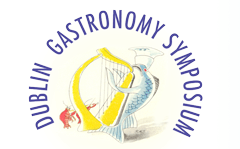Start Date
28-5-2024 4:15 PM
End Date
28-5-2024 4:30 PM
Description
The relevance of examining late nineteenth-century Cuba depends from its being a colony under two powers, one European and one extra-European: the formal Spanish empire that had the political power and the informal supremacy of the US economic influence. However, within the framework of of enlarging its authority in the American region, the US perceived Cuba as a strategic island that was under the Spanish dominion. For the US expansionistic aims, Cuba has, in fact, been defined as a laboratory for the US empire (Pérez 2008) Through the analysis of newspapers’ articles, images published in the satirical magazine The Puck, mixed drinks’ recipes books, and others, this paper hypothesizes that also alcoholic beverages and mixed drink were used to enforce the US power in Cuba. More specifically, my aim is examining how US citizens connected beverages with a key global event of the dawn of the twentieth century such as the Spanish-American war (1898) in order to reinforce an imagine a community (Anderson 1983) built around the entering into the war, its victory and its memory. The war was, not only an armed conflict with wounded and death, but also a conflict around the way of perceiving the same United States and its policies. And, according to my interpretation, the memory of this war was also built around mixed drinks: from the name given to new cocktails, to their colors and to the same bartenders’ tools and performances in preparing them.
Creative Commons License

This work is licensed under a Creative Commons Attribution-NonCommercial-Share Alike 4.0 International License.
DOI
https://doi.org/10.21427/rxem-bk03
Included in
American Material Culture Commons, American Politics Commons, Cultural History Commons, Food Studies Commons, Latin American History Commons, Other Arts and Humanities Commons, Other Languages, Societies, and Cultures Commons, Social History Commons, Sociology of Culture Commons, Speech and Rhetorical Studies Commons, United States History Commons
The Memory of a Victory: The Spanish-American War through Cocktail Names, “War Drinks” and the Art of Mixing
The relevance of examining late nineteenth-century Cuba depends from its being a colony under two powers, one European and one extra-European: the formal Spanish empire that had the political power and the informal supremacy of the US economic influence. However, within the framework of of enlarging its authority in the American region, the US perceived Cuba as a strategic island that was under the Spanish dominion. For the US expansionistic aims, Cuba has, in fact, been defined as a laboratory for the US empire (Pérez 2008) Through the analysis of newspapers’ articles, images published in the satirical magazine The Puck, mixed drinks’ recipes books, and others, this paper hypothesizes that also alcoholic beverages and mixed drink were used to enforce the US power in Cuba. More specifically, my aim is examining how US citizens connected beverages with a key global event of the dawn of the twentieth century such as the Spanish-American war (1898) in order to reinforce an imagine a community (Anderson 1983) built around the entering into the war, its victory and its memory. The war was, not only an armed conflict with wounded and death, but also a conflict around the way of perceiving the same United States and its policies. And, according to my interpretation, the memory of this war was also built around mixed drinks: from the name given to new cocktails, to their colors and to the same bartenders’ tools and performances in preparing them.
